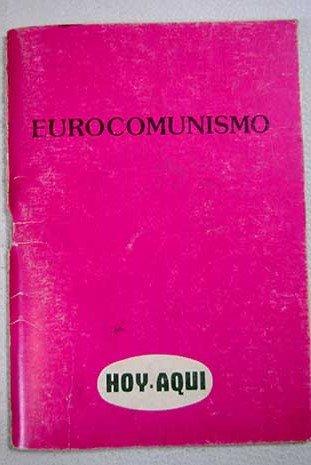Eurocommunism is a demand by the Communist parties of Eastern and Western Europe for independence from the Soviet Union. Such independence would give each Communist party the right to determine its own road to socialism. The problems faced by the Communist parties in Eastern and Western Europe are not identical. In Western Europe the Communist parties exist primarily in democratic countries with a pluralistic society.
The Soviet government traditionally has exercised considerable control over local Communist parties in Western Europe. The problem con-fronting Communist parties in the West is not only their relationship to Moscow but to non-Communist parties as well. The problem is particularly important in France and Italy, where the Communist parties are fairly large and at times play an important role by holding the balance of power in parliament.’
History of Eurocommunism
In Eastern Europe this idea of alienation has been used to criticize Stalin-ism. It has been argued that the worker under Stalin-ism was as alienated as under capital-ism because he had no part in the decision-making process and was subject to the power of the bureaucracy. Some of the Eastern European writers such as Milovan Djilas. Georg Lukacs, and Roy Medvedev, among others, contend that Marxism must reject many of its own doctrines and return to the humanism of the early Marx.
They are hoping to develop a new version of communism that will give more importance to the individual. The issues in the West concern not only obedience to policies made by Moscow but also the right to criticize Soviet policy and to form electoral alliances, particular-ly with non-Communist parties on the Left. In France, as far back as the 1930s, the Communists formed an electoral alliance with other parties of the Left for a brief time. Recently an electoral alliance with the socialists was formed but broke up shortly thereafter. Italian Communists have even developed a tenuous cooperation with the ruling Christian Democrats by voting to support the government on some occasions, though this cooperation has eroded recently.
It has been suggested that some of the West European Communist Parties are guided by an independent principle or tendency that often is labeled “Eurocommunism.” This, if true, may be the result of two developments in the past twenty years: (1) a growing awareness in Western Europe of the failure of Soviet Communism and (2) an effort on the part of Communist parties to adjust their brand of communism to the needs of advanced industrial societies.16 In this way they hope for growing popular support, which would increase their chances for participating in governments.
